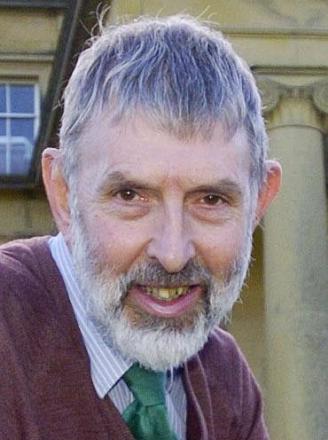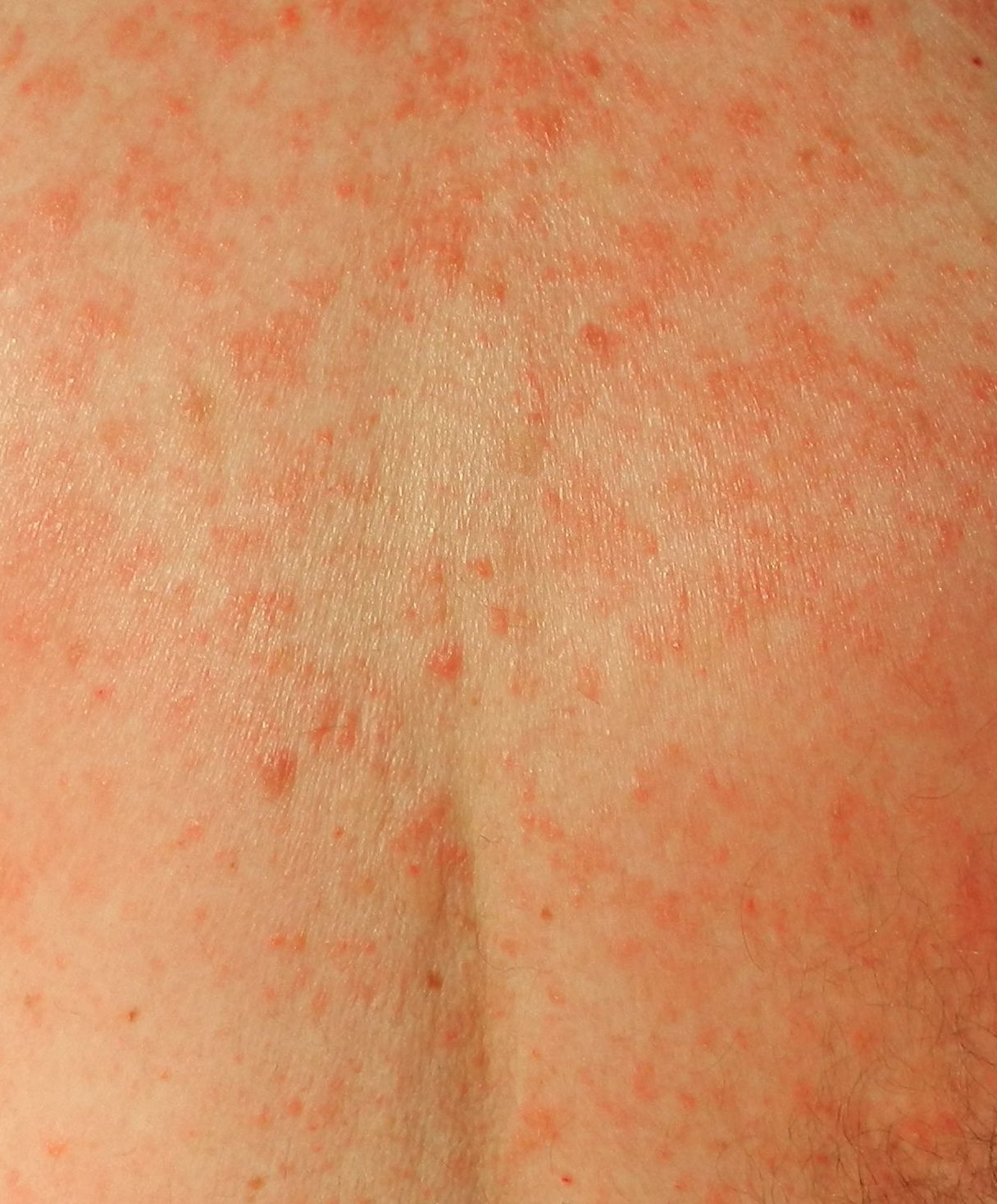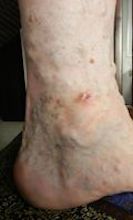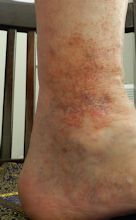
![]() Printable page in A4 size
Printable page in A4 size ![]()
Open Future Health Blog
Your habits when you are in your 40's and 50's are the foundation for your good health and fitness at 85. Improved diet is the low cost alternative to extensive medical intervention later in life. The body has the ability to heal itself, if we treat it with respect. ANYBODY who adopts a healthy diet, at ANY AGE, will benefit, and as the months go by, those benefits will multiply.
March 2017 - 10 items
Update on Expertise Pages
It's taken two weeks but I've finally completed an update of the experts we feature in the Open Future Health website.
Summary of Who's New
 |
| Aseem Malhotra - Cardiologist UK - Advocate for Better Medicine |
|---|
Dr Malhotra is a stern critic of the medical system. From heart surgery, which is his specialty, to diabetes treatment and obesity, where he's also very vocal. It's clear that we can do much better, often the key is to do less medicine not more. Too many procedures, that have no medical value, are done every day, just so doctors can avoid the argument that they didn't do "everything possible." This is silly. There is a limit to medicine, and we should be open about saying that.
 |
| Kieran Clarke Biochemistry, Ketone Specialist |
|---|
Professor Clarke has an illustrious career. She's published hundreds of scientific papers. She's build a very successful department in the University of Oxford, UK. She's a biochemist who trained under Dr Richard Veech, and they have worked together for 20 years. They have a special interest in the medical uses of ketones and hope to build a business to market their patented products. A drink for athletes and specialist military people, has been successfully used to improve elite performance.
 |
| Richard Veech Biochemist - Laboratory Manager NIH |
|---|
Dr Richard Veech, might be the world's leading researcher on the Krebs Cycle, the production of ATP and the use of ketones in the body. He's past retirement age, but he still runs a big laboratory, starting work at 6.30 each morning. He thinks that the dietary method of achieving ketosis is never likely to be popular, even though it works well. He thinks the key is to make a drink or a pill, that will put people into ketosis in a few minutes, whenever they need to achieve that.
(Note 2022:) Dr Veech died on February 6, 2020, at the age of 84.
 |
| Ian Lake UK GP and Type 1 Diabetic |
|---|
After more than 20 years dealing with his own diabetes, Dr Lake realised that he was losing control, just like his patients. His additional medical knowledge was not protecting him. He discovered LCHF living by accident, listening to online discussions. He tried an experiment on himself, with success. Then slowly he began to work with his patients and found they had success too.
 |
| David Unwin NHS Innovator of the Year UK |
|---|
Dr Unwin was very concerned about the rising rate of diabetes in his practice. For 25 years he had faithfully followed the guidelines the NHS had established for diabetes treatment. It had never gone well. Thinking about why, he looked again at the Glycaemic index, and realised that the wholemeal bread they were recommending created an enormous amount of sugar in the blood stream. Surely the key was to eliminate foods like that. So he began to run his own trial with some young diabetics in his practice, and had a lot of success.
 |
| Joanne R McCormack - Children's Health |
|---|
Dr McCormack has practiced medicine for 23 years, in the UK. She built her reputation around he work with children, winning a national award. That work took her online, where she discovered a diverse range of opinions on medical treatments and health problems.
Of particular concern was the increasing numbers of diabetes patients that she could see even in her own clinic. A real benefit of the Internet was that she could update her own knowledge, and participate in the discussions that concerned her. She began to put her own material online. That now includes a website called Fat is My Friend.
 |
| Verner Wheelock Agricultural Scientist, Food Advocate |
|---|
This is a more unusual story. Dr Wheelock is an agricultural scientist who realised that something was wrong with the diet of the nation, and began to explore what that might be. He wrote a book about it a few years back. In the last five years he's been writing a blog, quietly documenting his developing knowledge in preparation for another book. There are 250 posts in the blog and nothing has been added recently, so I assume the book is currently being written.
The Failure of Governance
Failure of Governance and Political Corruption
When governance fails, when politics is used for personal enrichment, where economic opportunity is destroyed by lack of investment in education, infrastructure and fair rules of trade, most people live in enforced poverty.
We can see that pattern in Eastern Europe in particular, where poor governance and lack of economic opportunity has caused both a severe decline in the birth rate, and a strong desire among the young to emigrate to a country that offers better education, employment and lifestyle choices. Italy, Spain, Greece and Portugal also have this problem.
Population Decline is Already Happening
In Syria, drought was followed by a failure to support bankrupt farmers, those farmers migrated to the city, leading to discontent, protests, and finally to civil war. Syria has suffered the greatest population decline of all nation states in 2013-2016. Expect more of that, in many other countries.
Poor governance has also caused the populations of South Africa and Puerto Rico to decline. Another way to see where there are problems in the world, is to look at the statistics for orphans in various counties. In Asia, for instance in India, China and Bangladesh. In Africa, Nigeria, Ethiopia and the Democratic Republic of the Congo, have extreme problems with children who have no parents.
Ecological Collapse
Humanity has problems, caused by excessive population, excessive production of waste, and excessive consumption of many of the earth's natural resources. Humanity demands more not less. We are already consuming the earth at a faster rate than natural replenishment can occur. The logical result of that is ecological collapse, as seen today in Syria, Dafur, Somalia, Honduras, Haiti and many other places. Often just reported as a drought, or a flood, as civil protest or as war; but over several years, repeated "events" mean the land is no longer a place for sustainable agricultural production, or for a stable community, at least for the existing population. That flows on to create economic and social hardship, leading to political protests and community disruption.
Fifteen years ago in Canterbury, NZ, there was a movement to hold an annual celebration of the quality of Canterbury water, the ground-water and our rivers. Today those rivers are rated amongst the worst in the country, sometimes they dry-up altogether. The groundwater is over allocated and declining, often polluted by nitrogen (or even micro-organisms) filtering down from the over-stocked and soil depleted farmland above. Degraded rivers and estuaries reduce spawning opportunities for many fish types, and birds are deprived of habitat.
Seven years ago (2010) scientists identified Nine Planetary Boundaries. Here is Johan Rockstrom's Ted talk on that topic.
Video Removed on this printed version.
In the last seven years we've seen the situation get noticeably worse.
World-wide the oceans are becoming more acidic, threatening coral reefs everywhere, removing a key spawning ground for fish species. Add to that the continuing irresponsibility in the way we choose to fish the oceans. Major fishing grounds have already disappeared, the North Sea, the Grand Banks and the East China Sea, as examples. Over fishing upsets the ecological balance of the ocean, hence the loss of most large ocean fish, the explosion of jelly-fish populations because of the loss of predators, and as fish stocks decline the loss of both food supply and employment in the fishing industry.
The world is facing environmental degradation on many fronts. The economy is dependent on climate, on water supply, on energy supply and on political stability. Failure triggered by the stressed environment will happen, we are far too far, down the cause and effect chain, to prevent environmental catastrophes. We are causing climate change with a 40+ year lag in effect. Quite likely the world is already committed to 4 degrees of warming. That will prohibit agriculture as we know it, in the lifetime of people who are alive today. Ocean acidification, and the loss of biodiversity on the planet, signals ecological destruction, and our own demise. The failure of humanity to be good stewards of the planet, will lead to catastrophic population decline at some stage. We have seen the beginning of this trend. The dominoes will continue to fall, at a gathering pace.
Can Vegetarian or Vegan dietary change be a solution?
The Living Economies Expo was attended by good people trying to do their best for the environment, for the community and for their own health. They are well educated and informed. They are concerned about the overuse of natural resources, the collapse of local economies, and the viability of local food production. They seek to develop the social connectedness of communities, using local currencies and local decision making processes.
Regarding food and nutrition, there were a large number of vegetarians, and some vegan's in attendance. I've very little to offer people who think that way. As individuals, they have the very best of intentions for the planet, for society, and for their own health. I used to believe that their standards were a "gold standard" we should all try to achieve. Only 5-6 years ago my own meat consumption was down to chicken and fish, each about once a week. I thought that was healthy eating, but I was getting fat, and my diet was the problem.
Today my message isn't one of comfort to vegetarians. The planet doesn't care, it will get on just fine, in fact even better, if all humans are gone.
Some might argue that if everyone was vegan, we could take the cattle off the land, and things would improve. In nature, mixed farming with both grazing and foraging animals and with forestry and cropping is desirable to restore the soils. Think organic farming with animals, rather than just rotational cropping. Better still, think of permaculture forests as the ideal way to improve both soils and food sources for human health. But with a much smaller world population.
What's best for both the land and for human health, is unlikely to support the profit objectives of multi-national food production companies. The financial imperative driving the world towards ecological collapse remains.
Grain production is stable or rising slowly, but at about half the rate of population increase. There is potential to improve the productivity rates, but on the ground that's proving hard to put into practice. Besides populations that are heavily reliant on grains for nutrition don't enjoy the best health.
If everyone in the world was vegetarian, the outcome for the world would be the same. We will be unable to feed everyone. Ecological collapse will still happen. Being vegetarian is a personal sacrifice you make, for no long run benefit for the planet or for society as a whole.
Finally, being vegetarian is bad for your own health. It's possible for people to be both healthy and vegetarian. But it's difficult to do. Many people fully committed to this lifestyle for 20 our more years, even people who spent years teaching people how to be successful vegetarians, finally get sick themselves. After a long battle to get well again, they finally begin to eat meat again. When they do, good health returns. Both Zoe Harcombe and Nina Teicholz had that experience, and it's a commonly reported situation.
In talking to people face to face, I've met many obese vegetarians. I know precisely why they are obese. They need much more fat in their diet. Olive oil and coconut oil will do the job, but honestly, animal fats and animal organs are a much easier way to get the fats and the minerals and vitamins you need.
Following the Weston Price Dietary Recommendation

At the Living Economies Expo, in Lyttelton over the weekend, I met a number of obese people who I tried to engage in conversation about weight loss. Largely I failed to be helpful or effective. If you imagine there's nothing to learn here reading this general introduction to nutrition will get you interested.
The Bus Drivers
First of all there were the bus drivers. At least four, perhaps more. All the bus drivers on the long trip to Lyttelton, except one, were obese, two grossly obese. One driver told me that type 2 diabetes was normal for bus drivers, and that all his associates had it. "Nothing can be done unless I lose weight, and I've tried. You don't get much exercise doing this job."
Two points here: One, if you are obese you should not try to walk or run to lose weight. You'll do damage to your joints, and the effect on weight loss will be close to zero anyhow. The Swedish Experts Committee told us that clearly ten years ago. Many studies confirm that result. Exercise is important to good health, but it's not an effective tool for weight loss.
Second, eating less is not a sensible way to lose weight. You simply get hungry, and while for a few days, of a few weeks you might put up with that, eventually you'll give up. The popular idea that you need to make a balance between calories in and calories out, by either controlling what you eat, or by exercising more, is nonsense. The fact that many scientific researchers and doctors still believe that, doesn't make it valid. Your body is not a machine. Definitive proof of that, is in the Women's Health Initiative. (See below) Eight years of eating 350 calories a day less than required for maintenance, created in almost no weight loss at all.
To effectively loose weight forever, you need to eat in a way that ensures that you NEVER feel hungry. If you eat a Banting diet, that will happen, and the weight will fall away. (An alternative is intermittent but regular fasting.)
A Paleo Diet Convert
One woman and her husband were both obese. She was very open an approachable. I asked her if weight loss was one of her objectives. Yes she said, "But I'm on top of that, I've already lost over 30kg." That took me back a bit.
So, I'm interested, and I asked what's the secret? A Paleo diet, low carbohydrate and high fat. Yes, she's got it. Paleo is a question mark, it depends who your expert source is. LCHF is right, but once again some people have better knowledge than others.
Here's the problem. She knows the right words. She has had some success, a great deal of success, with the knowledge she has. Because she "KNOWS" it's difficult for me to help and for her to imagine that she might need help. I'll be interested to find out what the next year brings. She can easily lose another 20kg, and I hope she does.
A Weston Price Follower
I met several Maori and Pacific people who were obese, but were also very well aware that Weston Price was full of praise for Pacific Island and Maori people, for the quality of their diet.
Here is a short video where Weston Price tells you how to prevent tooth decay and poor health. (You have to download the video, and then play it.)
One woman in particular explained that she eats the diet her grandparents ate, exactly the diet that Weston Price recommended. "My diet is excellent," she says. I can tell by looking at her, that her diet is far from excellent. But if that's what she says, there's no room for me to offer her any help.
People quickly put up walls against dietary advice. Each person has his or her own life experience. Everyone knows what a healthy diet is. Except that if 75% of us have weight problems, so perhaps we don't really know at all. We all know what we've been told is a healthy diet for the last 50 years. That's the diet that failed in the very carefully designed and recorded Women's Health Initiative.
This study is very important. It proves that a low-fat diet is not heart protective, and benefits for stroke, breast cancer and colon cancer were not found. Worse, it makes some cancers more likely. The diets of 19,000 women were carefully monitored. They did as they were told, right to the end, when the study was suddenly terminated (because of these bad results). They were told to eat less fat, and increase the consumption of fruits, vegetables and whole grains. They were told to reduce the cholesterol in their diets. They ate just a little less each day than they might have wanted. The diet was planned to be 350 calories a day short, so gradual weight loss of about 14 kg a year would occur. That didn't happen. The body simply down-regulated to make up for the energy short-fall, and the weight remained much the same.
A Busy Young Professional
This woman was a volunteer at the Expo, someone who worked very hard. She was complaining about her lack of fitness. I asked if she would like to lose some weight? Immediately the defensive walls went up. I'm OK, I have a personal trainer. I've lost 6kg in the last year. I'm happy.
I've heard that story before. The personal trainer might be very good, at improving strength and aerobic performance, and flexibility. But none of that resolves the poor diet problem. Poor diet is CAUSED by poor knowledge, often the knowledge the person involved thinks is the key to "good health."
If you already know the how to eat in a healthy way, so that you can control your weight, anything I might happen to know is not of importance to you.
Fighting Inflammation in the Body
The authors of "The Modern Nutritional Diseases," Alice and Fred Ottoboni write; "The broad underlying cause of all noninfectious diseases that are now epidemic (in modern communities) is chronic inflammation. All of these diseases have the same underlying cause; long term, low-level inflammation, brought about primarily by unhelpful diet."

|
| Hives over my back. Itchy skin. |
|---|
| This problem lasted a year, 2014-2015. I'm sure it was caused by my "healthy diet," in this case eating far too much fruit. It took me a long time to "discover" that. |
Three years ago I got quite sick, with a rash all over my body. I couldn't sleep in a warm bed. I couldn't resist scratching, until the skin started to bleed. The rash that the doctor called hives, occurred all over the body. It was worse at night, one factor that made me think it was related to my diet.
Sometimes it was so bad I didn't want to leave the house. In public resisting scratching was a burden.
My doctor said it was caused by an over-reactive immune system. That I'd never find out what caused it. One day it would go away as strangely as it came about. In one sense he was right about that, although it was about a year, before that happened. This was the first time I became aware of what generalised inflammation could be like.
Elimination to "discover" a Healthy Diet
I was convinced that my diet was causing the problem. There's a list of foods people are often allergic too, and I tried to eliminate those foods from my diet. With no effect. Many months later, when I tried gluten free (an idea I rejected for a long time), there was some improvement. By now my diet was quite restricted, and I tripped over the Banting Diet idea. Low-carbohydrate. I was almost there. "Cut out all grains and potatoes and eat less fruit." I could do that.
The result was a surprise. The rash went away and I began to lose weight quite quickly. I now think that the fruit I was eating, fruit I thought was "healthy," was the main dietary cause of my rash.
But I struggled with the new diet. Low-carbohydrate, is half of the story. For energy, on a low-carbohydrate diet you MUST eat a lot of fat. It took some months for me to learn that lesson. I experimented with coconut oil and olive oil. I ate quite of lot of coconut flesh. But in the end the best answer is the natural fat on the meat and lots of delicious butter.
Weight Loss Without Effort
Dr Jeff Volek has done a feeding experiment lasting five months where people only ate the meals supplied from the research kitchen. The group began in a very low carbohydrate diet (50g a day). There was a three week lead in period, so the subjects were already in ketosis to begin with.
Every three weeks the diet changed, but the calories in the diet were held constant. In six stages the carbohydrate in the diet was increased. The six steps were: 50g, 83g, 130g, 180g, 250g and 346g of carbohydrate per day.
Briefly, on less than 130g of carbohydrate a day, most people lose weight. From 130g to 250g of carbohydrate a day weight trends to be stable. Above 250g of carbohydrate a day weight tends to increase. So to lose weight you need to eat less than 130g a carbohydrate a day. But, if you get that amount down to 50g a day you'll be in ketosis and the weight loss will be more rapid and you'll fuel your body with ketones, rather than glucose.
Depending on your metabolism, somewhere between 130g and 50g of carbohydrate a day, there is a switch of metabolism from glucose burning to ketone burning. This switch takes a little time to settle in, seven to twenty days, perhaps longer if your diet is erratic. In the same way once ketosis is established, you tend to stay there unless you break the restriction several times.
There are two ways to do a very low carbohydrate diet. Choose not to be in ketosis. Eat about 130gm of carbohydrate a day, and have more carbohydrate options in your diet. Or, bite the bullet and keep you carbohydrates very low, aiming for 50gm a day. Being in ketosis will reduce the inflammation in your body, and you'll feel better for that.
Disseminated Vascular Inflammation
Dr Tim Noakes argues that type two diabetes is "disseminated vascular inflammation" caused by an excess of insulin in the blood vessels over a long period of time. When the arteries are inflamed in this way the smallest blood vessels are destroyed, and larger blood vessels develop problems in their walls. This might be the beginning point for a build up of materials in the cell wall that partially obstruct the flow of blood.
Like most things that happen in the body, normally inflammation is tightly controlled. For instance when glucose is oxidized in the mitochondria, free radicals, or more correctly reactive oxygen species are produced. Simultaneously the anti-oxidants to control that release are also made.
However if your system isn't functioning well ROS are not controlled and damage to your tissues will occur. This sort of damage is typical of the aging process in the body.
Varicose Veins Improving
The following result is quite unexpected.
I've had varicose veins all my life. My mother had them badly. I've had six previous operations and some other treatments over the last 40 years. Today those operations are not available under the public health service. Back in 2013, because of the ulcer, my doctor and I were discussing future surgical options. I needed to start building a fund to pay for that surgery.
I had always believed that varicose veins were caused by faulty valves, and that it was a simple, incurable mechanical problem. Hence the surgical solution was obvious, even if it only worked for 10-15 years.
Early in 2016, I changed to the Banting diet. Two key things happened. I lost almost 20kg, and because I'm in ketosis most of the energy my body uses comes from ketones. There is very little surplus glucose in my body, and insulin levels are always low.
I think that as a result of my diet, the amount of inflammation in my blood vessels has gone down, apparently to zero. The photographs tell the story. Somehow those faulty valves seem to rediscovered their power. Not perfectly, because I still have varicose veins, but today there is no sign of that ulcer, although you can see where it once was.
Which leg would you prefer to have? The 2013 version or the 2017 version?
| Leg swollen, painful to touch, itchy at night. Ulcer. Considering surgery. |
|---|

|
| My left ankle 2013. (About 50% full size.) |
| My ankle was sensitive to pressure, and often itchy during the night. You can see that the leg is full of fluid, swollen, and the veins are under pressure. Half way up the image, above the ankle bone, there is a wound from an ulcer not fully healed yet (now 6mm across), after three months of healing. It had been six times that size. Notice the blueness of the veins under the ankle bone. |
| Swelling gone. No pain or itchiness. No sign of the ulcer returning. |
|---|

|
| My left ankle 2017. (About 50% full size.) |
| My ankle isn't very pretty, but it's in much better health. Notice first that the swelling has gone, and while there is still some pressure in the veins it's not nearly as great. The ropes of expanded blue veins, that used to cross my feet have gone. The ankle is no longer sensitive to pressure and the itchiness has gone. |
What is Inflammation
Sometimes inflammation is obvious – it causes redness, warmth, and/or pain. Inflammation in the body is a normal and healthy response to injury or attack by germs. We can see it, feel it and measure it as local heat, redness, swelling, and pain. This is the body's way of getting more nourishment and more immune activity into an area that needs to fend off infection or to heal.
However, chronic inflammation can be invisible and silent. Chronic inflammation has been linked to cardiovascular diseases. ... Because the cytokines that respond to these insults are in the bloodstream, they can lead to systemic inflammation. Inflamed blood vessels and growing fatty plaque can cause blockages and blood clots, which can cause heart attacks.
Inflammatory skin diseases are the most common problem in dermatology. They come in many forms, from occasional rashes accompanied by skin itching and redness, to chronic conditions such as dermatitis (eczema), rosacea, hives, seborrheic dermatitis, and psoriasis. Skin inflammation can be characterized as acute or chronic.
Eating foods to which you are allergic causes inflammation which makes your adrenal glands secrete hormones which destabilize your insulin and blood sugar levels. ... Thus, food allergies can lead to weight gain, and a high amount of body fat can promote inflammation and exacerbate problems with allergies.
Three years ago, when my body was highly inflamed, but I didn't understand that language. My hives reaction was chronic (long lasting), and sometimes acute. That condition is technically called chronic idiopathic urticaria. My doctor offered me a cream to reduce the itching and antihistamine tablets.
Edit 2022: This is still a minor problem for me. I wonder if anxiety is the driver? I'm very reluctant to admit that I might be anxious. What do I have to worry about? Worry and anxiety are different things. I working now on this website after neglecting it for about 4 years, I've noticed that the itchy skin problem I've had has almost vanished. Maybe more on that later.
Inflammation Laboratory Test (CRP)
Recently at my request, my doctor ordered a C-reactive protein (CRP) test for inflammation. The result was negative. My doctor said that there was medical interest in inflammation, but the test wasn't done very much because nobody knows what to do if the test is positive.
I think I have the solution. Eat a diet that allows you to be in ketosis. When you body burns ketones, it produces very few inflammatory ROS, and your vascular system will become less inflamed.
Usually inflammation is fairly obvious anyway but there are three laboratory tests for it. C-reactive protein (CRP) is one common test for inflammation. The level of CRP increases when you have certain diseases which cause inflammation. CRP can be measured from a blood sample.
Please choose a screen size to return to the Index.